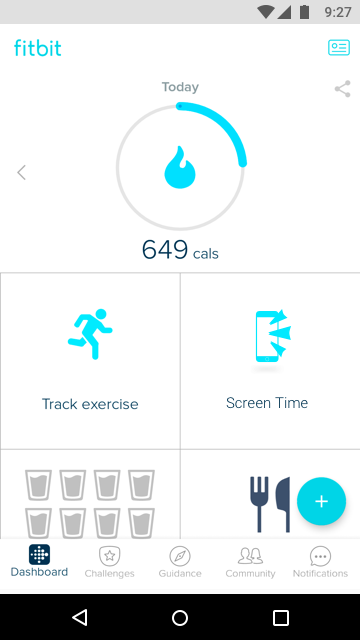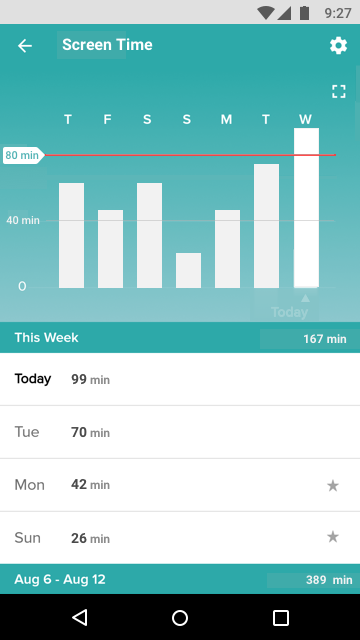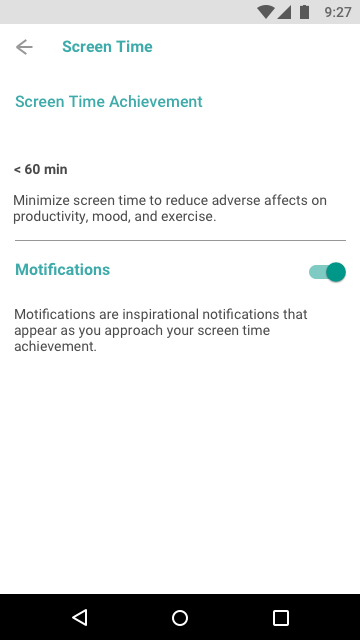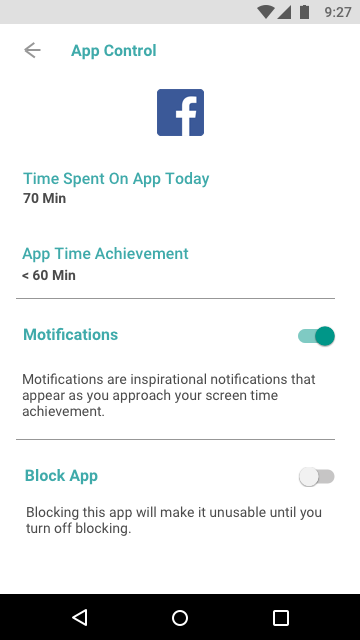OVERVIEW
Our hyper-connected culture is spending more and more time looking at electronic screens, and this is having detrimental effects on our society. This was the assumption by which myself, and a team of UX Designers went about proposing a feature concept for the popular fitness app and wearable maker, Fitbit.
ScreenTime is a feature concept geared towards the health-conscious user who wants to reduce their exposure to smartphones and increase their activity levels, improve sleep, and be more mindful of their surroundings.
Exploration
Surveys and interviews provided data that is consistent with published research.
50% of users screened reported spending 1-3 hours per day using their smart phones
50% of users spend 3 hours or more
67% of users screened say they spend most of their time on their phones during evening hours
Health studies have shown some of the adverse effects screen exposure can have on our wellbeing.
Sleep: Blue light from digital screens minimizes hormones that promote sleep
Addiction and Reward Seeking: New posts and notifications give users a dopamine rush that keeps users returning
Overall Health: More time on screens means more time sitting down instead of engaging with the world around us
Challenge
“I’ve romanticized about the past when you could be unplugged and disconnected."
What the statistics don't show is that people are well aware of the negative affects of all this screen time and were open to solutions.
People need a way to monitor and control their exposure to digital screens in order to improve overall health.
REflection
An application could alert users who are at risk of over-exposure to screens and users encourage them to limit it by raising awareness and promoting behavioral changes.
Why Fitbit?
The Fitbit user is interested in lifestyle metrics such as steps taken in a day, quality of sleep, and daily calorie intake. The same user would be curious about screen time as another measure of heath.
Data Analytics could be employed to show correlations. For example, less screen time at night results in more restful sleep.
Features
AWARENESS & BEHAVIOR MODIFICATION
Screentime will track the phone's awake time and most frequently used apps so users will know how much time they're looking at their screens, and which apps are taking up the most time.
Screentime is also designed to promote behavioral changes through quotas, app blocking, and minor inconvenience in the form of modals and notifications.
RESULT
"Screentime" promotes personal productivity, better sleep, and overall health improvement.
This is a unique opportunity for Fitbit to introduce a new aspect of health into their current dashboard. There are no competitors within the Fitness Tech space that considers screen time as a factor of overall health.




